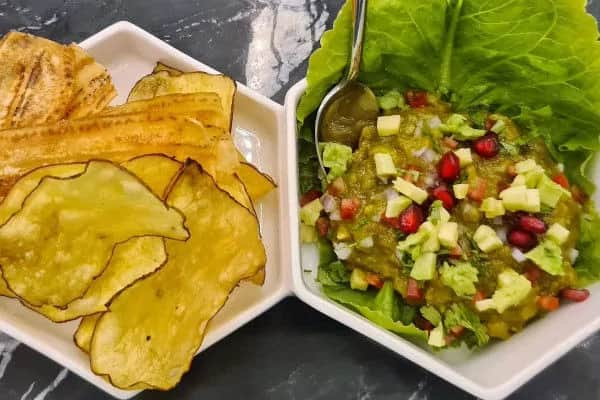Having opened the super successful iconic restaurant “Wasabi by Morimoto” at the Taj Mahal Hotel, New Delhi, there has been no looking back for Chef Vikramjit Roy. Now as the Co-Founder of Context.Eat, which has brands like Hello Panda, Park Street Rolls & Biryani, Woke Pizza, Sumdimsum and is now “The Tangra Project”, a unique conceptual restaurant at DLF Avenue in Saket, Chef Vikramjit has left no stone unturned to show his culinary skill across.
In an quick chit-chat with HTSlurrp he talks about his new project, his idea of comfort food and more.
When conceptualizing a new menu what are the few things that you always take care of?
Menus for me is an extension to my thought-process which is based on multiple factors. The entire concept of the restaurant, the story behind the space, the style of service, location is the first stepping stone whilst building a menu. The next is seasonality, being sustainable, the equipment sets, skill set in the kitchen are the next factors which dominate the process. Personally for me, I like to work with where the restaurant is - be a part of the ecology of the place - not by playing safe, but being positively disruptive.
What has been your comeback mantra to adapt to the businesses post the pandemic?
Resilience, Optimism, Planning. The way in which we approach business has changed for good after the pandemic. Protecting cash-flow and equating potential risk are key factors for me.
Fusion food is gaining a lot of attention. What is your idea of Fusion food and what has been your best creation?
Honestly, I don't relate to the tag of Fusion. Food for me is like fashion - both come back with time, but the difference between both is food comes back evolved. If being evolved is Fusion, then I think everything else in our lives - be it the clothes we wear, or the technology we use, or even the vehicles we drive is Fusion. For me, food does not remain within boundaries. It is food that brings people of different cultures, castes, tribes together in harmony on a table. This is the most beautiful thing - and it is achieved by amalgamating various cultures, ingredients, techniques together.
 Gondhoraj Fish and Chives dumplings
Gondhoraj Fish and Chives dumplings
This has come to me after putting my head on why we love our mother's cooking the most. After many years and speaking with my mother on the subject, I realised that she cooks thinking about us eating it eventually. It’s the love she puts in whilst she is making it thinking of us that makes the dish connect with us on a very personal level. Neither does she weigh ingredients, nor follow standard recipes but it’s the care that makes dishes magical for us.
What’s your idea of comfort food and why?
For me, comfort food is directly proportional to nostalgia and memories. Anything that reminds us of happy times with friends & family brings about comfort. I won't say that my mum's food is the only comfort food for me, growing up professionally in Japanese kitchens also has built a lot of comfort dishes for me - right from Oyakodon, Chawanmushi, Hitsumabushi, etc are also very comfort for me because it brings back my memories whilst growing up in the kitchen.
The culinary genius that you are, how do you see the industry embracing age old recipes, old grains like amaranth, millet etc and sustainability as the way forward?
As stated earlier, I feel food like fashion does come back - but food comes back evolved. Embracing ancient recipes by adapting them to suit the current lifestyle is the way forward. If we make an ancient dish exactly the same way as it was made maybe 100 years ago, chances of our body & system not embracing it is quite high as the lifestyle and physicality involved then is not the same now. Food is always made for the time it is in, which is exactly similar to everything else in life, which is why we wear clothes suiting the current time rather than banana leaves, use mobile phones rather than messengers on horses.

Sustainability is extremely important for all of us to consider as a core culture rather than just a practice. Its high time we take it seriously and be conscious of what and from where are we getting our produce from. Working with seasons also plays a key role to make sustainability a culture as it gives us opportunity to use what is abundantly available around us rather than importing something from far off or trying to vertically grow ingredients not suiting the soil or weather.
When it comes to professional cooking, what is your favourite method of cooking and why?
Braising.
I love the entire process. It is one technique that can't be done in a hurry or have shortcuts to. Slowly cooking vegetables or meats is like making love - there is care, compassion, respect for each other & you need to invest time to nurture the outcome.
In the recent past one of your fav dining experiences and what made it special?
I loved my experience at a restaurant called Sushi Ayumu by Masa Ishibashi in Singapore. What made it special was its honesty & the quality of produce used. It was high quality cooking served with elegance with the right amount of oomph.


